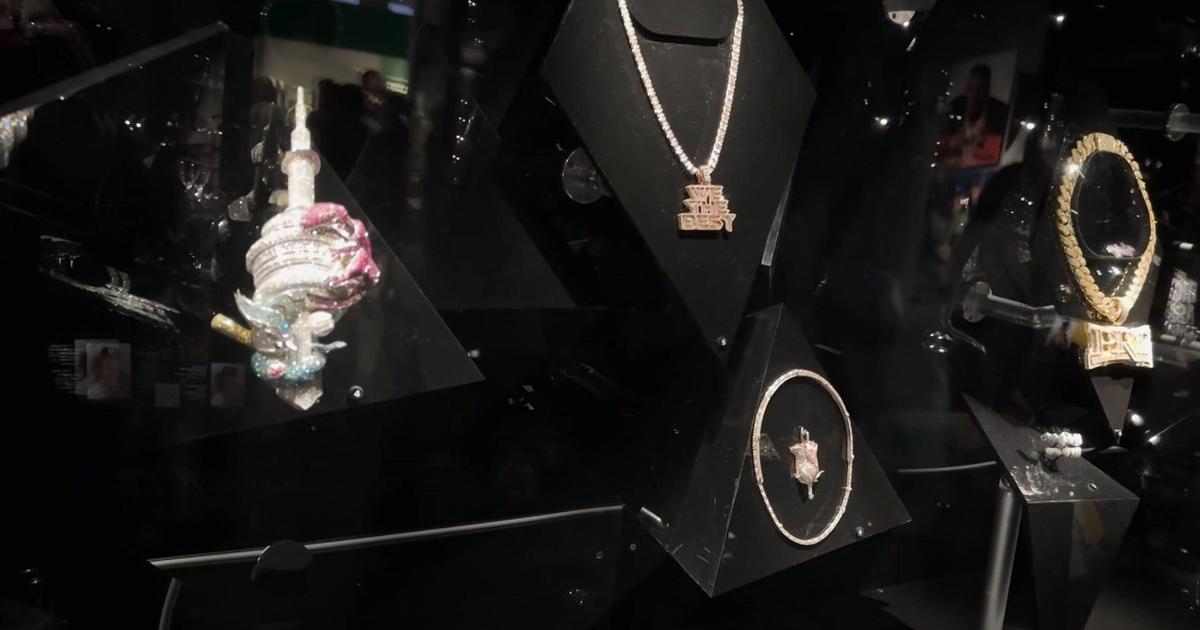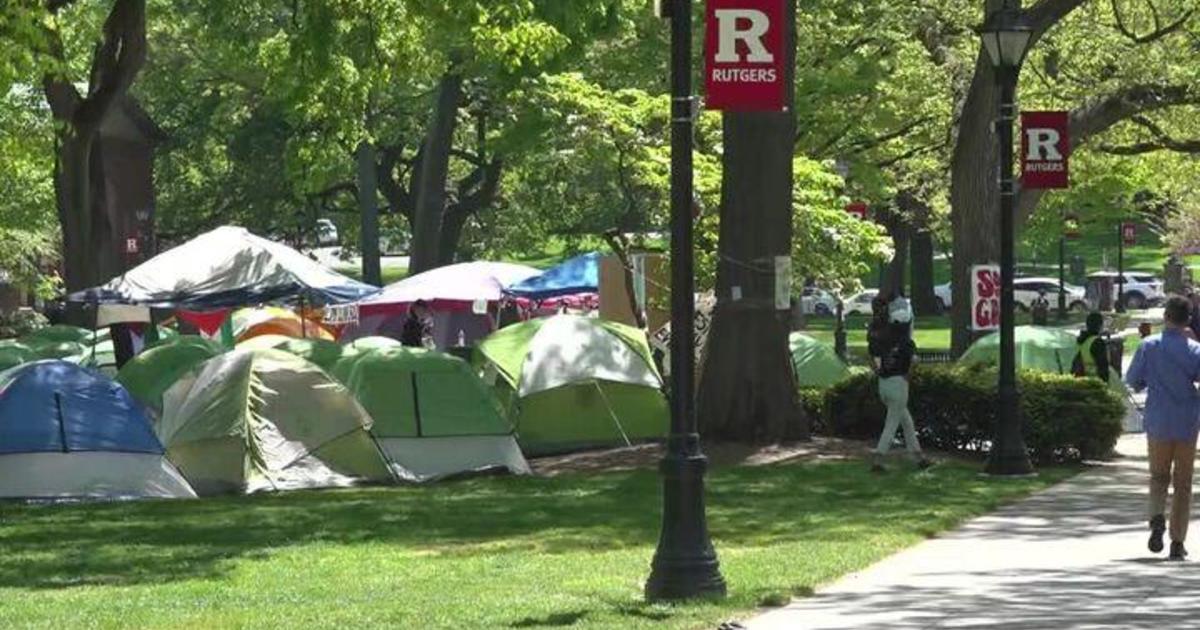Assad Warns Of Retaliation For U.S. Strike On Syria
WASHINGTON (CBSNewYork/AP) -- Syrian President Bashar al-Assad has warned there will be retaliation against the U.S. for any military strike launched in response to a chemical weapons attack.
As CBS 2's Andrea Grymes reported, al-Assad made the remarks during an exclusive interview with Charlie Rose that was broadcast Monday on "CBS This Morning." His remarks came as President Barack Obama has been ramping up efforts to convince Congress to authorize a military strike against Syria.
Rose: "Will there be attacks against American bases in the Middle East if there's an air strike?"
Assad: "You should expect everything. You should expect everything. Not necessarily through the government. The government is not the only player in this region. You have different parties. You have different factions. You have different ideology. You have everything in this region now. So you have to expect that."
Rose went on to ask Assad to clarify what he meant by "expect everything."
Assad: "Expect every action."
Rose: "Including chemical warfare?"
Assad: "That depends."
It depends, Assad said, on whether terrorists, rebels or any other group possesses chemical weapons.
But asked by Rose if he was making a threat of a direct military response to an attack, Assad was vague, saying at one point, "I am not fortune teller to tell you what's going to happen.''
Assad's chat with Rose was his only TV interview since Obama asked Congress to authorize the strike. The White House is convinced that Assad used chemical weapons on his own people.
The White House says more than 1,400 Syrian civilians were killed in a chemical weapons attack outside Damascus on Aug. 21 using sarin gas.
Assad demanded that Obama present the evidence that the Syrian government had launched the attack.
"I will tell him very simply, 'Present what you have as evidence to the public. Be transparent,'" Assad said.
Assad insisted that no proof of any kind had been presented that his government had been behind a chemical attack.
Assad: "Nothing presented. Nothing has been presented so far."
Rose: "They have presented it to the Congress, sir. You're a reporter. Get this evidence and show it to the public in your country."
U.S. Secretary of State John Kerry reiterated the claim Monday that the federal government does indeed have sufficiently strong evidence.
"We know by tracing it physically where the rockets came from and where they landed," he said.
Kerry, who joined British Foreign Secretary William Hague at a news conference in London, said that he would be confident to take evidence that the U.S. intelligence committee has gathered into any courtroom.
"What does he offer?'' Kerry asked rhetorically of Assad. "Words that are contradicted by fact.''
But Assad denied involvement.
Assad: "We were not in the area where the alleged chemical attack was happened. We are not sure."
Rose: "Even at this date, you are not sure that chemical weapons, even though you have seen the videotape, even though you've seen the bodies, even though your own officials have been there?"
Assad: "Our soldiers in another area were attacked chemically."
Assad also said they have to expect the worst in Syria, thanks to the "lies" being told by high-ranking White House officials.
He argued the evidence Secretary of State Kerry has disclosed amounts to a "big lie'' that resembles the case for war in Iraq that Secretary of State Colin Powell made to the United Nations more than a decade ago.
Kerry said the U.S. realizes that there is no military solution to conflict, but that a political resolution will not be possible if the Assad regime is allowed to continue killing the Syrian people without consequences.
"The evidence is powerful and the question for all of us is what are we going to do? Turn our backs? Have a moment of silence?'' Kerry asked.
As CBS 2's Alice Gainer reported, Kerry also suggested that Assad could resolve the crisis by surrendering his arsenal to the international community by the end of the week. But he said he knew Assad would not do so.
However, at the urging of Syrian ally Russia, Syria's foreign minister said it welcomes the suggestion – marking what appears to be the country's first official acknowledgement that it does possess chemical weapons.
The Obama administration said Kerry was only making a rhetorical argument about the impossibility and unlikelihood of Assad turning over his weapons when he made the suggestion. Still, the administration will have a hard look at the proposal.
Rose spoke Monday with CBS 2's Maurice DuBois and Kristine Johnson about Kerry's perceived suggestion for resolution. He said he did not yet know about Kerry's comments during his interview with Assad, but still asked what Assad thought about a possible resolution.
"I asked the president of Syria, 'What if you give up the chemical weapons? And the president said if you do, he will not engage a military strike.' And he said, 'On behalf of the region – and we're only part of the region – to prevent a crazy war, I would consider that as a good idea," Rose said. "So interestingly, not without the specific question, but with the principle, he seemed to open the door, to me, the possibility that something could be arranged to prevent the kind of strike that is anticipated."
Assad's remark on avoiding a strike came even though he would not say whether his country even had chemical weapons, Rose said.
Johnson also asked Rose what he thought Assad's motives were for doing the interview at all.
"I think he tried to define the world as he sees it. On chemical weapons, he refused to say whether he did or did not have them. On the question of whether they engaged in chemical weapons, he said, 'Let's see the evidence in public, not just present it to Congress. Let's see the evidence,'" Rose said. "He constantly made reference to the fact that the people in the rebels had significant ties to al-Qaeda and al-Qaeda affiliates, and the United States should be fearful of the fact that if the balance was tipped to them, that might not be a very good thing for the United States or the region."
Rose said he did not believe his interview would be a game-changer on the issue.
"I don't think that what the president of Syria says will change the debate in Washington, because I think the debate in Washington really is about how the American public sees what America's national security interest is, and they will define it that way, and the president will insist on the fact that if, in fact, that the act of using chemical weapons goes unchallenged, it is bad for the national security interest of the United States because it might encourage Iran or other countries to do things they might not otherwise do because they believe the U.S. will not respond," Rose said.
In the Tri-State Area, U.S. Sen. Richard Blumenthal and U.S. Rep. Jim Himes, listening to constituents at a meeting in southwestern Connecticut, said they're unsure how they'll vote on whether to strike Syria.
Sen. Christopher Murphy, D-Conn., voted last week in the Senate Foreign Relations Committee against authorizing a strike. He said the downside risks of military action for U.S. interests and the Syrian people outweigh potential benefits.
The full interview with Assad will air on Monday evening's "Charlie Rose" show on PBS.
Obama will address the nation about the crisis in Syria on Tuesday at 9 p.m.
Check Out These Other Stories From CBSNewYork.com:
(TM and © Copyright 2013 CBS Radio Inc. and its relevant subsidiaries. CBS RADIO and EYE Logo TM and Copyright 2013 CBS Broadcasting Inc. Used under license. All Rights Reserved. This material may not be published, broadcast, rewritten, or redistributed. The Associated Press contributed to this report.)



